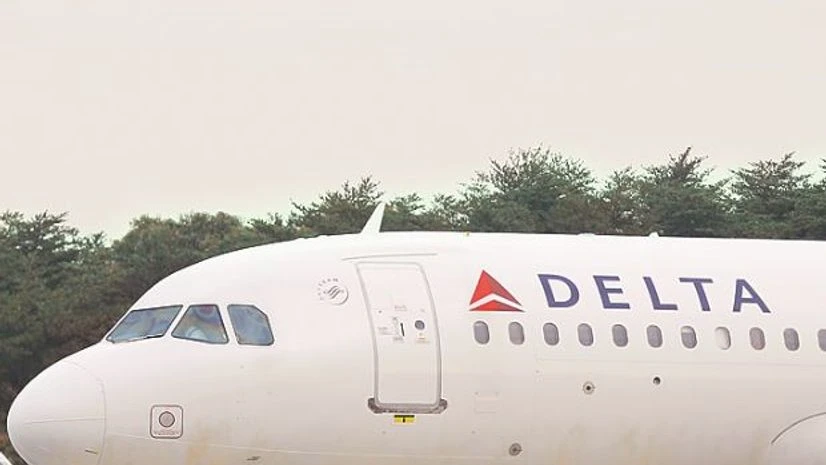The summer travel season was even worse than expected for Delta Air Lines, which said Tuesday that it lost $5.4 billion in the third quarter as people hunkered down at home during the pandemic.
Delta officials pushed back their timetable for breaking even, from year-end to next spring, as their previous expectation that COVID-19 would be contained proved too rosy. The airline's shares slipped in afternoon trading.
However, executives said passengers are starting to return and bookings for Thanksgiving and Christmas are looking up.
It's slow, but it's steady week by week, they are coming back, CEO Ed Bastian said of passengers.
Bastian said Delta plans to stop blocking middle seats in the first half of next year. That would reverse a policy that Delta has used to distinguish itself during the pandemic from its closest peers, American Airlines and United Airlines, who do not block seats.
Also Read
The number of people screened at U.S. airports is down 65% this month, compared with last October, but that's better than the 68% decline in September, the 71% drop in August and the 96% plunge in mid-April.
Most of the people flying now are low-fare leisure travelers. Delta depends heavily on business travel, which is still down 85% from a year ago, Bastian said.
Even there, however, the CEO was upbeat, saying that 90% of Delta's corporate customers have put some employees back in the air just not many of them.
Bastian said a widely available vaccine, rapid COVID testing and the lifting of traveler quarantines are needed before corporate travel recovers.
Delta's loss compared with a year-ago profit of $1.5 billion and nearly matched the loss of $5.7 billion in the second quarter, when the pandemic brought air travel to a near standstill. Since then, Delta has concentrated on hoarding cash it raised $9 billion by mortgaging its frequent-flyer program and cutting costs.
Delta reduced its cash-burn rate to $18.4 million a day in September from $26.1 million in July and August, and Bastian predicted it could reach break-even cash flow by spring. Investors are watching cash as a gauge for how long carriers can last in the industry's current depressed state.
Cowen airline analyst Helane Becker said she was not surprised that Delta said it would take more time than expected to hit break-even. Air travel demand has been improving, but the pace of the recovery has been slower than what the market wants to hear. Delta shares were down more than 2% in afternoon trading.
The slower cash burn comes with a human price: It is possible in part because 18,000 employees took buyouts or early retirement and thousands more have taken unpaid leave. Executives said 40,000 took leave during the summer; 12,000 were on leave in September. Delta had 91,000 employees in January.
The large number of voluntary departures has let Delta avoid layoffs, in sharp contrast to American, which furloughed 19,000 employees this month, and United, which cut 13,000.
Delta could still furlough 1,700 pilots next month unless the union agrees to contract concessions or Congress and the White House provide more aid for the airline industry.
We haven't needed to furlough our employees took care of that themselves, Bastian said in an interview. They didn't rely on the government relief to take of saving their jobs. They saved each other's jobs. Back in April, airlines reached agreements with the Treasury Department for up to $25 billion in payroll relief, with Delta getting $5.4 billion. The money and an accompanying ban on layoffs expired this month. The industry and its unions are seeking another $25 billion.
The Air Line Pilots Association said it negotiated a deal this spring that led 1,800 pilots to retire early, and it was committing to negotiating a deal now to avoid furloughs.
Most of Delta's third-quarter loss stemmed from the cost of paying people to quit and writing down the value of assets including planes destined for resale or the scrap yard. The rest was linked to a 76% plunge in revenue.
The company reported a pretax loss of $2.6 billion, excluding charges for employee severance and asset write-downs and a gain from the federal payroll grant. The adjusted loss of $3.30 per share compared with an average forecast of $3 per share among 18 analysts surveyed by FactSet.
Revenue plummeted to $3.06 billion, less than the $3.13 billion estimated by analysts. Passenger revenue, which excludes cargo and the Delta-owned refinery, dropped 83% from a year earlier an improvement from the 94% plunge in the second quarter.
Delta predicted passenger revenue will continue to rise.
(Only the headline and picture of this report may have been reworked by the Business Standard staff; the rest of the content is auto-generated from a syndicated feed.)

)
